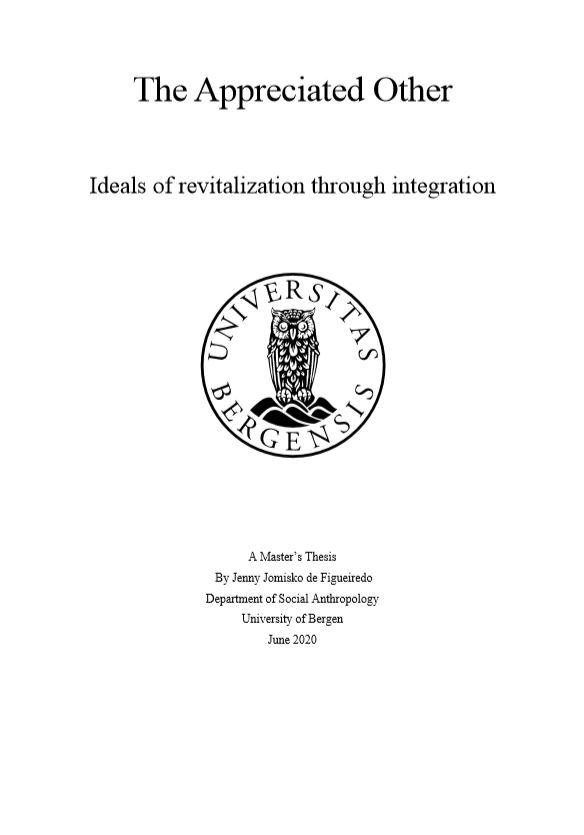The Appreciated Other: Ideals of revitalization through integration
Hovedinnhold
Master's thesis submitted at Department of Social Anthropology, spring 2020.
By: Jenny W. J. de Figueiredo
Supervisor: PhD candiate Marianna Betti
Due to a history of accommodating immigrants since the 1990s, Badolato has built a reputation of being il paese di accoglienza (the town of hospitality), with its own modello di accoglienza (accommodation model). In the news, immigration in Italy and Europe is often depicted as a problem to be fixed, and the influx of migrants is described as a liability for the receiving state. It is therefore interesting that in Badolato, several of the local Italians perceive immigration as an opportunity of revitalization and reciprocal cultural exchange in the face of regional depopulation and an aging population. The facilitators of integration in Badolato work towards creating a sustainable community that includes the migrants, so that they can help stimulate the local economy and revitalize the town. However, many of the migrants did not seem to envision themselves as part of the integration narrative of revitalization and cultural exchange. Their lives in Badolato are characterized by temporality and a precariousness that does not match what the integration project intends.
What forms of social bonds are created across and within the different groups of the community in light of this divergence of expectations? In the thesis, I set out to explore the social dynamics that unfold in the intersection between the idealistic narrative of the intercultural accommodation model, and the social reality that I observed during my fieldwork. I discuss the facilitators of integration’s attempts to rekindle the original experiment of the 1990s’ arrival of the Kurdish refugees in order to carry forth the narrative of the hospitable integration town. This project is dependent on the Appreciated Other – the social imaginary of the foreign guest that reinvigorates the host culture through his otherness. However, the conceptualization of the Appreciated Other presents the migrants as extraordinary guests and commended outsiders, thereby reproducing them as “strangers within”. Genuine hospitality may therefore be lost in symbolic gestures of staged hospitality. Rather than the advocacy for the urgent political aspects of immigration, moments of community building between the migrants and the Badolatesi developed during mundane activities like football, voluntary work and the sharing of food. Genuine hospitality was therefore more likely to take place when performativity and political agenda was absent from the interaction between the migrants and the facilitators of integration.
Keywords: migration; integration; othering; hospitality; waiting.
